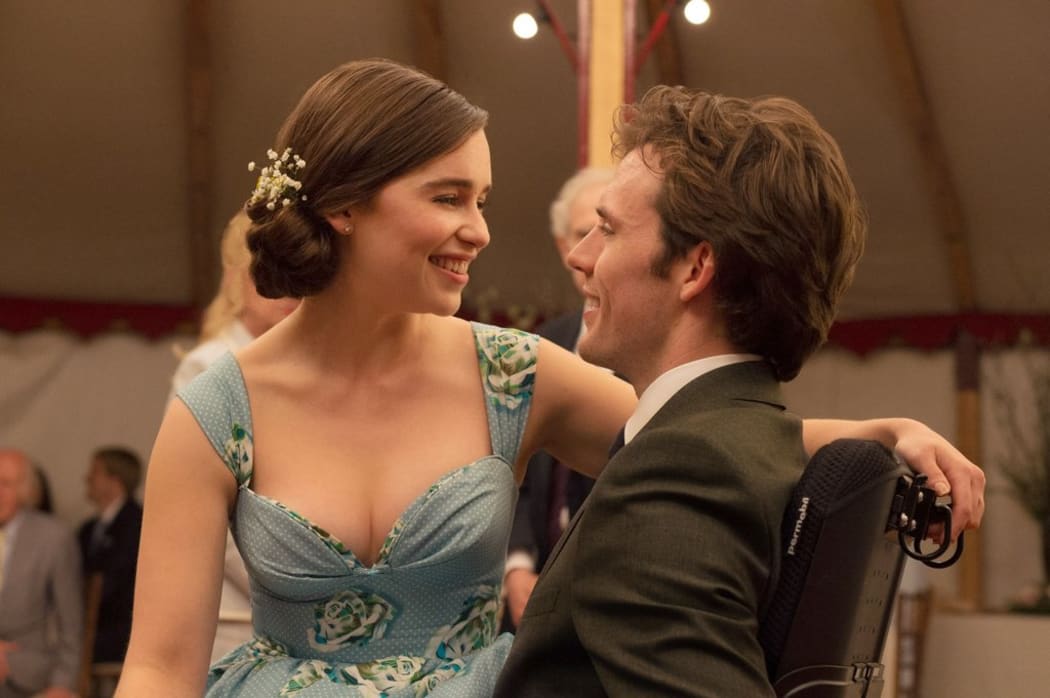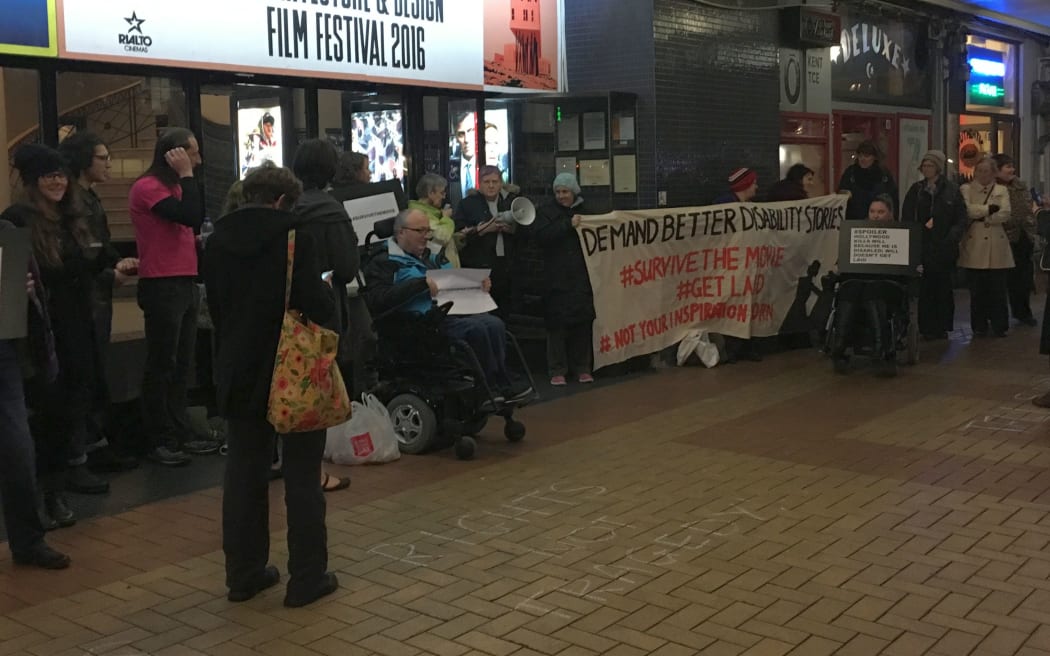
Emilia Clarke and Sam Claflin in Me Before You. Photo: Warner Bros.
Esther Woodbury was one of the organisers of a protest against the film Me Before You because of how it depicts disability.
Bryan Crump talks with her about the way films and other media commonly focus on disabled people as tragic, inspirational to other people, or heroically overcoming perceived barriers, while misunderstanding what those barriers actually are.
Read an edited excerpt from the interview below:
I got a sense that the protest with the movie was not just about the movie on its own, it’s almost as if Me Before You was the final straw for some.
Yeah, and perhaps the makers of this film were in some ways unfairly targeted, because it is a story that has been made before, but I think because there are so few stories about disabled people, there are so few opportunities for disabled people to see themselves on screen. I think that they definitely push the… ‘This is a story about a disabled person and this is a love story that involves disability’, so I think that they themselves pushed it. For example in Million Dollar Baby, the story is not really promoted like that, it’s not really framed liked that, but Me Before You was presented as a different kind of love story.
What are some of the things that you in particular are battling with in terms of the friction between you and the able-bodied world and the media portrayals of disabled people. What are you wanting to see?
I would like to see more stories told about disability and more stories told by disabled people so that any particular story and character or media representation isn’t going to be held up as the view of disability. I think it’s really great that we have celebrations of disabled athletes, but you don’t often see many celebratory stories about disability outside of sports arenas. And it’s very frustrating.
Has it been a good month though, because we have had the Paralympics?
Absolutely. I don’t want to detract from the athletes at all and they should be celebrated. I think it’s really good that disabled people are in the public consciousness. That’s really important because I would hope that the more that you see disabled people, the more you realise that disabled people are people and have their own stories and their own lives and motivations and complexities and things like that.
But it’s really interesting when you look at… there has been a lot written about really big promotion of the Paralympics for example in the UK and how on one side of the paper there would be this celebration of disabled athletes and then on the other side of the paper, there would be stories about disabled people trying to rip off the state by claiming welfare and how the government was cracking down on them.
There seems to be these two stories about disabled people. They’re either inspiring because they’ve overcome these barriers, which are usually perceived to be their disability rather than a whole lot of social discrimination, or they’re really sad sob stories or bludgers on welfare, sort of thing.
There’s nothing in the middle.
No, there are no ordinary disabled people doing ordinary, boring things.
Because in the end, I am guessing that most disabled people are like those of us who do have control of all of our limbs and digits or whatever and that is that you’re ordinary human beings who struggle with the ordinary things like getting motivated to get up in the morning, getting into work and doing all of that stuff. These are the things that we all face. What I do see sometimes is the disabled person as the guru in some movies, not the protagonist.
No. they are either the inspiration or the motivation for the main character. The main character can pick themselves up and feel like, ‘You know what, that disabled person told me something inspirational and I’m going to go out there and save the day.’ They’re very often background characters of plot points. Disappointing.

People outside the Embassy Theatre in Wellington protest the movie ‘Me Before You’. Photo: Paula Booth

